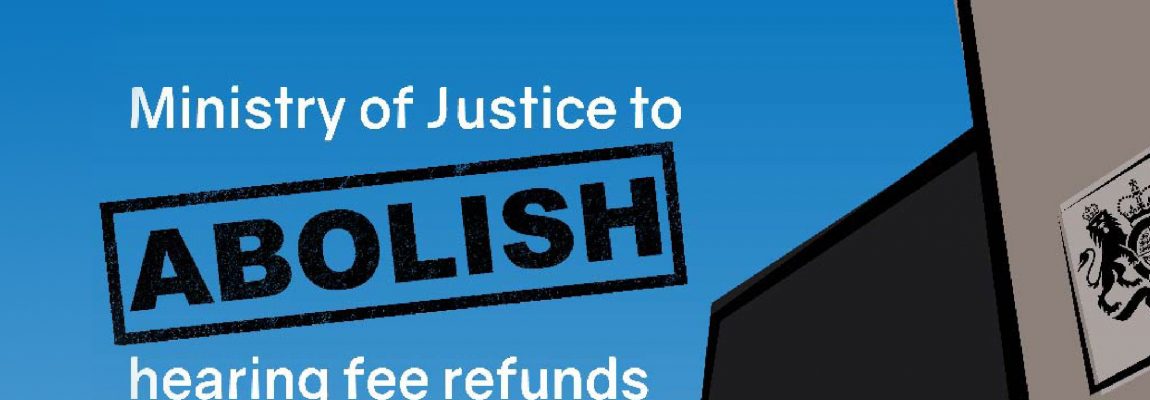 The MOJ has recently announced that hearing fee refunds for fees payable by a Claimant when bringing a case before the Court are to be abolished as of March 2017. When a Claimant brings a case to Court having already spent money on issue fees, and is in receipt of a hearing date, they must pay a fee for that hearing or trial. These fees range from £25 to £1,090 depending on the value and complexity of the case.
The MOJ has recently announced that hearing fee refunds for fees payable by a Claimant when bringing a case before the Court are to be abolished as of March 2017. When a Claimant brings a case to Court having already spent money on issue fees, and is in receipt of a hearing date, they must pay a fee for that hearing or trial. These fees range from £25 to £1,090 depending on the value and complexity of the case.
Currently, if the parties settle their dispute at least 7 days prior to trial or final hearing they will receive a refund of that hearing fee from the Court, as one might expect. Due to The Civil Proceedings Fee (Amendment) Order 2016 which becomes law in March 2017 this will no longer be the case. Hearing fees will still need to be paid by Claimants. However, once paid and if settled prior to the hearing they will not receive any refund from the Court.
This will potentially result in a major increase in cases not reaching a settlement outside of court. Claimants having paid that fee and knowing that they will not recover it unless they win their case at trial will undoubtedly want this fee added to offers when negotiating. This may be the ‘straw that broke the camel’s back’ as far as Defendants are concerned and therefore may not be prepared to recognize this fee within negotiations. This fee may prove to be the sticking point in negotiations which will lead to an increase in cases reaching trial and a decrease in settlements. This will lead to an increased volume of cases to be tried which will undoubtedly result in significant delays in bringing cases to court.
The rationale for such a move by the MOJ has been the need to reduce costs to taxpayers. This is a backward approach. Surely as a taxpayer one would want to see an improvement in the court system, quickening of the claims process, recruitment of more staff so we can achieve a thriving, efficient, consistent, and just legal system.
